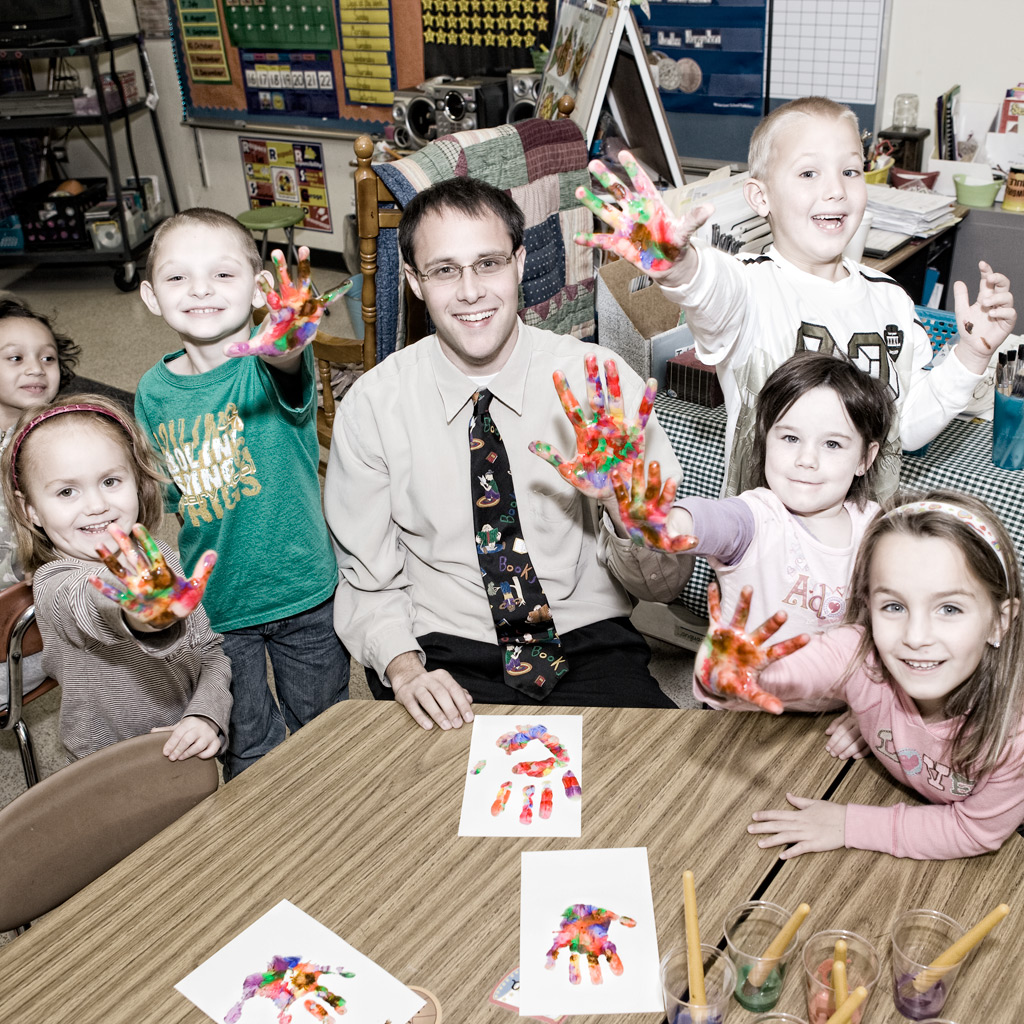Take a minute to think about your 4th Grade classroom… your classroom when you were a student. How about your 10th Grade History classroom? What do you remember about the layout of the classroom, the instructional strategies the teacher used, the technologies that were available to you?
Now take a minute to think about your first year as a teacher. What did your classroom look like? What were considered best-practices in instruction? How did you engage your students?
I can remember classrooms where desks were in rows, teachers sat at the front of the classroom and wrote notes on the overhead projector, which I dutifully copied into my notebook. I remember the latest technology being a new laser-disc player that would show pictures on the television rather than by the clicking of a slideshow. During my first years of teaching, I was thrilled to get an AverKey device that would allow me to show my computer screen through the television. I worked to engage my students with passionate performances of reading selections and showing videos that would hook their attention.
I would venture to say that most teachers currently work in a classroom that looks very different from the classrooms that you just thought about. Students in today’s classrooms are expected to build their own knowledge through various performance tasks, research and collaboration. We are currently educating students that are very different from those sitting in our classrooms ten years ago. We are preparing our students for jobs that might not yet exist.
Over the past decade, we have learned a lot about how our brains retain information, how to engage our students by using instructional best practices, and how to teach our students skills of collaboration and teamwork. I recently had the opportunity to share some of this information with a group of beginning teachers at the North Carolina Center for the Advancement of Teaching. We learned about the importance of having our students participate in various writing activities to engage themselves in the learning process and to communicate their thinking. We learned about the role that student discussion can play in our students’ ability to transfer information from their short to long-term memory. Just as our knowledge of how children learn has increased throughout the past decade, advancements in technology have helped transform our classrooms. Teachers are able to use various technologies to network with colleagues across the globe, to more efficiently collaborate with colleagues in their schools and to engage students in research and collaboration. Michael Fullan writes that “the integration of technology and pedagogy to maximize learning must meet four criteria. It must be irresistibly engaging; elegantly efficient (challenging but easy to use); technologically ubiquitous; and steeped in real-life problem solving”. This integration has the power to truly transform the work that we do as educators. While at NCCAT, we learned about teachers can use Twitter as a source of professional development and how Google Tools for Education can be used to increase teacher productivity and to engage students in communicating their own learning.
What if educators had not been willing to make the changes necessary for teaching our students these skills that they will need to be successful in the future? What if “school” looked like it did 20 years ago?
We recognize that change is often difficult, but Harrison Owen once said:
“Change is a journey and the journey is always about change. And if there is no
change, why bother with the journey?”
The work that we do is important; it is essential that we embrace the changes that we face on a daily basis, to constantly work to improve our practice to better meet the needs of our students. Why? … Because our students are that important.
Take a minute and add a comment of a change that you have observed in today’s schooling systems or add a resource that has been beneficial to you for productivity, planning, or instruction.
Here is a link presentation materials Brian used during the program - http://goo.gl/d1bfmQ
Photo with story is of NCCAT presenter Brian Bettis as a beginning teacher. "Success from the Start: Foundational Skills For Beginning Teachers" is open to teachers in their first, second, or third year of teaching, this program supports motivated beginning teachers by strengthening their knowledge base and classroom expertise. Through experiential learning, teachers explored pedagogical concerns including differentiated instruction, brain-compatible teaching, assessment, the effect of poverty on achievement and behavior, and classroom management.
